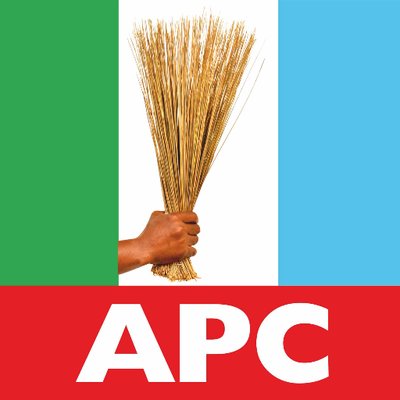The All Progressives Congress (APC) has launched a scathing attack on the newly formed opposition coalition, branding its members as self-serving deceivers motivated by personal vendettas rather than genuine concern for the nation’s welfare. The coalition, which recently adopted the African Democratic Congress (ADC) as its platform for the 2027 elections, has drawn sharp criticism from the ruling party. The APC’s National Publicity Secretary, Felix Morka, dismissed the coalition as a desperate attempt by power-hungry politicians to regain access to the “corridors of power and patronage.” He asserted that Nigerians are discerning enough to see through the coalition’s “misguided agenda” and will not be swayed by their rhetoric. This marks a significant escalation in the political battle lines being drawn in anticipation of the upcoming elections.
The APC’s statement particularly targeted Senator David Mark, the alleged National Chairman of the ADC, whose speech at the coalition’s unveiling was characterized as “disgracefully vacant” and filled with “untruths and baseless allegations.” Morka questioned the coalition’s purpose and value proposition for Nigerians, emphasizing their perceived lack of a concrete agenda beyond their desire for power. He challenged the coalition to articulate specific policy alternatives to the Tinubu administration’s economic and sectoral reforms, highlighting their alleged “cluelessness” and lack of concern for the nation’s well-being. The APC’s forceful response underscores the growing tensions between the ruling party and the opposition as the 2027 elections draw closer.
Central to the APC’s defense of the Tinubu administration is the assertion that significant progress has been made across various sectors despite acknowledged challenges. Morka pointed to a range of economic indicators, including GDP growth, increased external reserves, improved debt service-to-revenue ratio, declining inflation, and increased earnings for farmers. He further highlighted achievements in infrastructure development, healthcare, and security, emphasizing the government’s commitment to improving the lives of Nigerians. This narrative of progress forms a key pillar of the APC’s strategy to counter the opposition’s criticisms and maintain public support.
The opposition coalition, however, maintains a starkly different perspective, characterizing the Tinubu administration as a failure and calling for a change in leadership. Their criticisms focus on the ongoing challenges faced by the country, including economic hardship, insecurity, and perceived mismanagement. The coalition’s formation represents a concerted effort to unite disparate opposition forces and present a united front against the ruling party in the 2027 elections. The coalescing of key opposition figures like Peter Obi, Atiku Abubakar, Nasir El-Rufai, and Rotimi Amaechi under the ADC banner signals a potentially formidable challenge to the APC’s hold on power.
The adoption of the ADC as the coalition’s platform follows extensive consultations among opposition leaders and represents a strategic move to consolidate their efforts. The choice of the ADC, a relatively smaller party, suggests a desire to create a fresh start and distance themselves from the baggage of existing larger parties. The coalition’s success will depend on their ability to effectively communicate their vision for the country and convince voters that they offer a viable alternative to the APC. The upcoming elections promise to be a fiercely contested battleground for the future direction of Nigeria.
The APC’s strong rebuttal of the opposition’s criticisms and its highlighting of the administration’s achievements set the stage for a heated political campaign in the lead-up to the 2027 elections. The clashing narratives presented by the ruling party and the opposition coalition will undoubtedly dominate the political discourse in the coming years. The ultimate verdict will rest with the Nigerian electorate, who will have the opportunity to decide which vision for the country they endorse at the ballot box. The unfolding political drama promises to be a defining moment for Nigeria’s democracy.


